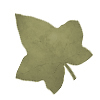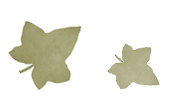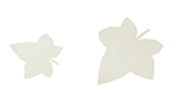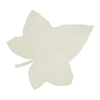


|
This small, spiny evergreen tree, growing to a height of 6 - 7m, is the least hardy of the citrus trees. The glossy, dark green leaves are ovalish with pointed tips and crinkly edges. As with all the citrus family the leaves have glands which secrete aromatic oils. Very fragrant white flowers, tinged purple on the outside, emerge from reddish buds. Considered by Romans as an antidote for many poisons, Lemons are very rich in minerals and vitamins - including B1, B2, B3, Carotene (pro-vitamin A) and vitamin C - and was used specifically for scurvy on English ships at sea. Lemons have anti-bacterial, anti-inflammatory, anti-viral, and anti-histamine properties, help tone the heart and blood vessels, can improve circulation in the peripherals, and make a useful stimulant for the liver. In folk medicine the Lemon was a poplar remedy for feverish chills and coughs - and warm lemon juice is effective as a gargle for sore throats. I remember a remedy for sore throats which always worked a treat for me : use the juice from a couple of lemons and an orange, together with the rind, and simmer in a little water for 5-10 mins. Remove the rinds (leave any fruit flesh) add a little honey to taste, and drink! Nowadays I might add a clove in whilst simmering, and a pinch of cinnamon to taste - delicious and will work wonders on your sore throat! Another remedy for reducing temperatures is to add a slice of lemon to a glass of water and drink as often as required. [For a refreshing alternative to the daily cuppa why not try this Italian drink Canarino : infuse some very finely pared lemon peel in a cup of boiling water for a few minutes] Lemon juice is effective for easing sunburn and irritant skin rashes - and makes a good emergency wash for minor cuts and grazes because of its antiseptic properties. Nosebleeds can be treated by soaking cotton wool in lemon juice and using it to plug the nostrils. A remedy for chilblains is to paint them with fresh lemon juice. Taken internally, the juice is considered invaluable for acidic disorders such as arthritis and rheumatism, and is of benefit to dysentery and liver congestion. Warmed slices of the fresh fruit can be used topically to ease neuralgia pains and skin irritations. In beauty treatments Lemon was traditionally used to whiten skin and teeth, fade freckles and blemishes, and lighten hair. It is especially useful for sufferers of greasy skin - swab the fresh juice on as a mask [or wipe a slice of lemon over your skin], and leave on for as long as you desire, or even overnight. The high antioxidant content makes lemon juice an excellent remedy for combatting wrinkles. It also boosts the micro-circulation of the skin, which helps remove blackheads and other blemishes, and will will leave your skin lovely and soft too! To remedy dry, chapped skin on the elbows or knees take a lemon half and rub the flesh over the skin. Works a treat! This remedy will also help clear up dandruff - cut a lemon in half [or use lemon slices] and rub into the scalp. Leave in and relax for awhile before rinsing out. In Aromatherapy : an A-Z, Patricia Davis notes that the "juice of one lemon can be added to each litre if you are ever doubtful about the source of drinking water." The essential oil of lemon is reported to kill diphtheria bacilli in 20 minutes, and a 0.2% dilution make tuberculosis bacilli completely inactive. Always try to use organically
grown, unwaxed, fresh fruit, otherwise the oil may
be heavily contaminated with pesticides. Rotten lemons have been suggested as a friendly remedy to expel ants from the house or garden. |
|

Gaia's Garden Library
Non Fiction Section : Gaia's Garden Herblore | Susun S. Weed Articles | Articles and Musings
Fiction Section : Short Stories & Prose| As Told
By Cat | Public Domain Texts| Poetry
Shop | Library | Gallery | Forum | Contact | Links







